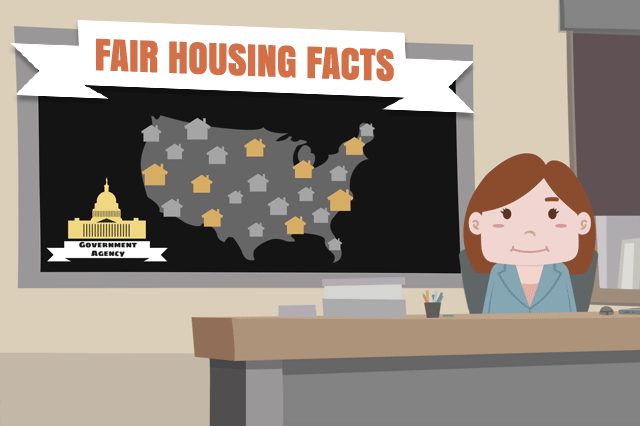The FHA Commitment to Fair Housing
February 11, 2025
This insurance reduces the risk associated with lending to borrowers who may otherwise be considered higher risk, encouraging lenders to offer more favorable terms, such as lower down payments and more flexible credit requirements.
A key element of the FHA program is its commitment to fair housing, deeply rooted in the Fair Housing Act.
The act, passed into law in 1968, prohibits housing discrimination based on race, color, religion, national origin, sex, familial status, and disability.
As a government agency, the FHA must uphold and enforce the Fair Housing Act in all its programs and operations.
The FHA's role in promoting fair housing is more than helping consumers avoid discriminatory practices. The FHA's mission includes removing barriers to housing opportunity and creating inclusive communities.
This involves educating lenders, real estate professionals, and consumers about their rights and responsibilities under the Fair Housing Act. The FHA also provides resources and support to individuals who believe they have experienced housing discrimination.
The Fair Housing Act and its Impact on FHA Lending
The Fair Housing Act is the cornerstone of fair housing law in the United States. It prohibits discrimination in selling, renting, or financing housing based on protected characteristics. The FHA plays a vital role in enforcing the Fair Housing Act and ensuring everyone has equal housing opportunities.
The following are the protected characteristics under the Fair Housing Act:
- Race: This includes discrimination based on ancestry or ethnic characteristics associated with a particular race.
- Color: This refers to discrimination based on a person's skin color.
- Religion: This protects individuals from discrimination based on their religious beliefs or practices.
- National Origin: This prohibits discrimination based on a person's birthplace, ancestry, or cultural background.
- Sex: This includes discrimination based on gender, sexual orientation, and gender identity.
- Familial Status: This protects families with children under 18 from discrimination. It also includes pregnant women and individuals seeking custody of a child.
- Disability: This prohibits discrimination against individuals with physical or mental disabilities and requires housing providers to make reasonable accommodations for them.
Lenders cannot refuse to make a loan, offer different loan terms, or deny housing opportunities based on a borrower's race, color, religion, national origin, sex, familial status, or disability. KNOW YOUR RIGHTS.

FHA Loan Articles
April 11, 2021With the trend of falling interest rates since 2019, the number of mortgage refinances around the country has spiked and continues to rise. Borrowers with FHA loans can also capitalize on the low rates, but it may be possible to simplify the process with the FHA Streamline Refinance.
April 3, 2021Borrowers can choose to refinance for several reasons, but it comes down to prioritizing different benefits. One homeowner may want the lowest possible monthly payment, while another might want the shortest possible term for their loan.
March 29, 2021The FHA helps first-time and low-income homebuyers by having lower down payment requirements for its borrowers. Despite this lower credit eligibility criteria set by FHA, it is important to remember that FHA-approved lenders can set their own requirements
March 24, 2021One of the major arguments people have for renting instead of buying is the large upfront cost of a down payment. Depending on the type of loan program you apply and are approved for, this could mean anything between 3.5% and 20% percent of your purchase price.
March 21, 2021The two basic types of home loans are fixed rate and adjustable-rate mortgages. The mortgage market offers many other options to homebuyers, but these two are the most common, and the first pair from which to pick.







